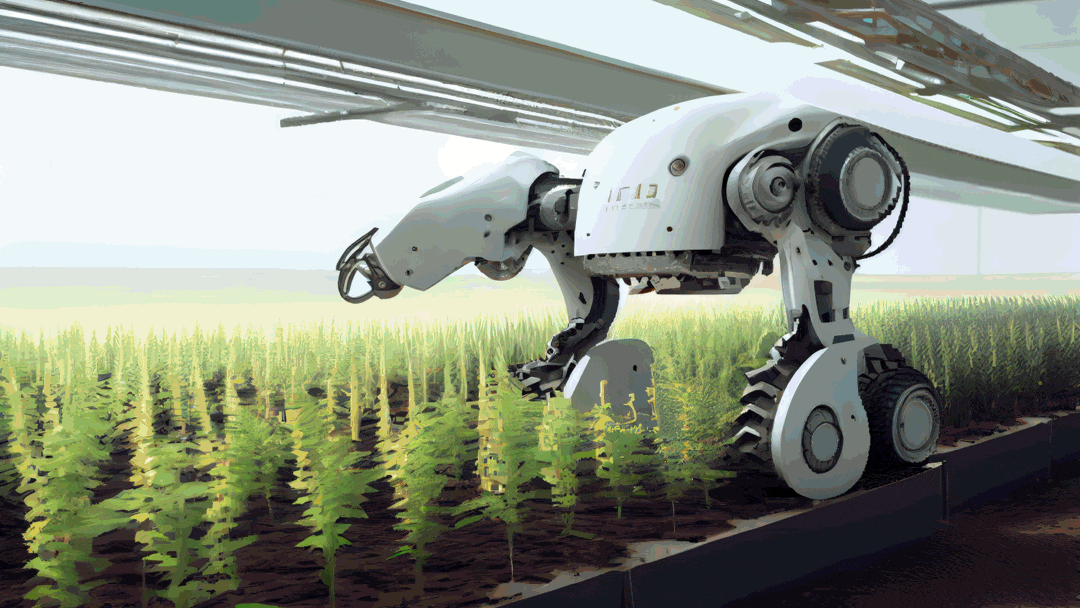AgriBots for Sustainable Farming
Project FarmBot Genesis: Innovating Sustainable Agriculture Through Robotics
Project FarmBot Genesis, a key initiative under the EU’s AgriBots for Sustainable Farming program, represents a significant leap in the integration of robotics into agriculture. With a budget of €8 million, this project was launched with the aim of developing robotic systems to automate and optimize various farming processes. By the end of its first year in 2023, €3 million of the budget had been dedicated to creating prototypes capable of performing essential agricultural tasks such as planting, watering, and weeding. The project assembled a team of over 50 agricultural scientists, robotics engineers, and sustainability experts from across the EU, focusing on developing a robot that could not only perform these tasks autonomously but also adapt to different crop types and environmental conditions. The goal was to create a system that could increase crop yields while minimizing the use of water, fertilizers, and pesticides, thereby promoting sustainable farming practices.
As of 2024, Project FarmBot Genesis has achieved significant milestones. The project successfully deployed its initial prototypes in select pilot farms across Europe, accounting for an expenditure of around €2.5 million. These robots demonstrated a remarkable capability to increase farming efficiency, showing a potential 20% increase in crop yields and a 30% reduction in water and fertilizer usage compared to traditional farming methods. Furthermore, the project has dedicated €1 million to research and development of AI algorithms that enable the robots to identify and address plant health issues, such as pests and diseases, without the need for chemical pesticides. This not only contributes to sustainable farming practices but also aligns with the EU’s broader environmental goals. The economic impact of FarmBot Genesis is substantial, with an estimated potential to reduce overall farming costs by up to 25%, mainly through reduced labor and resource costs. The project also focuses on scalability, ensuring that the technology can be adapted for different farm sizes and types, which is critical for widespread adoption. With an additional €1.5 million allocated for outreach and collaboration with farmers, the project aims to facilitate the integration of this technology into the European agricultural sector. The success of Project FarmBot Genesis underscores the EU’s commitment to leveraging technology for environmental sustainability and offers a promising vision for the future of smart and sustainable farming.
Project Pesticide-Free Bot: Revolutionizing Sustainable Agriculture
Project Pesticide-Free Bot, a vital component of the EU’s AgriBots for Sustainable Farming initiative, is making significant strides in the realm of environmentally friendly agriculture. Launched with a budget of €6 million, the project’s primary objective is to develop robotic solutions that can effectively combat pests and diseases in crops without relying on harmful chemical pesticides. By the end of the first year, in 2023, about €2 million of this budget had been allocated to the development and testing of AI-driven robotic systems capable of identifying and targeting agricultural pests and diseases with high precision. This innovative approach is anticipated to drastically reduce the environmental impact of traditional farming methods. The project, which involves a collaborative effort of over 40 experts in robotics, agriculture, and environmental science from various European countries, is not just a technological venture but also an ecological one, aiming to promote sustainable farming practices across the EU.
As of 2024, Project Pesticide-Free Bot has shown promising results in its developmental phase. The project team has successfully deployed prototype robots in several pilot farms, accounting for an expenditure of approximately €3 million. These prototypes have demonstrated a significant reduction in pest infestations, leading to a healthier crop yield without the use of chemical pesticides. The robots employ advanced sensors and machine learning algorithms to detect signs of pests and diseases at early stages, enabling timely intervention that is both efficient and ecologically friendly. This technology not only aids in maintaining the ecological balance but also ensures the production of healthier, organic produce. Economically, the adoption of Pesticide-Free Bot technology is projected to reduce the cost of pest management for farmers by up to 40%, considering the reduced need for chemical pesticides and associated application costs. Moreover, the project has set aside €1 million for further research into enhancing the efficiency and accuracy of the robots, ensuring that they remain adaptable to different types of crops and varying agricultural conditions. With an additional investment in farmer education and technology integration, Project Pesticide-Free Bot is poised to make a substantial impact on the future of sustainable agriculture in Europe, aligning with the EU’s broader goals of environmental sustainability and innovation in farming practices.

